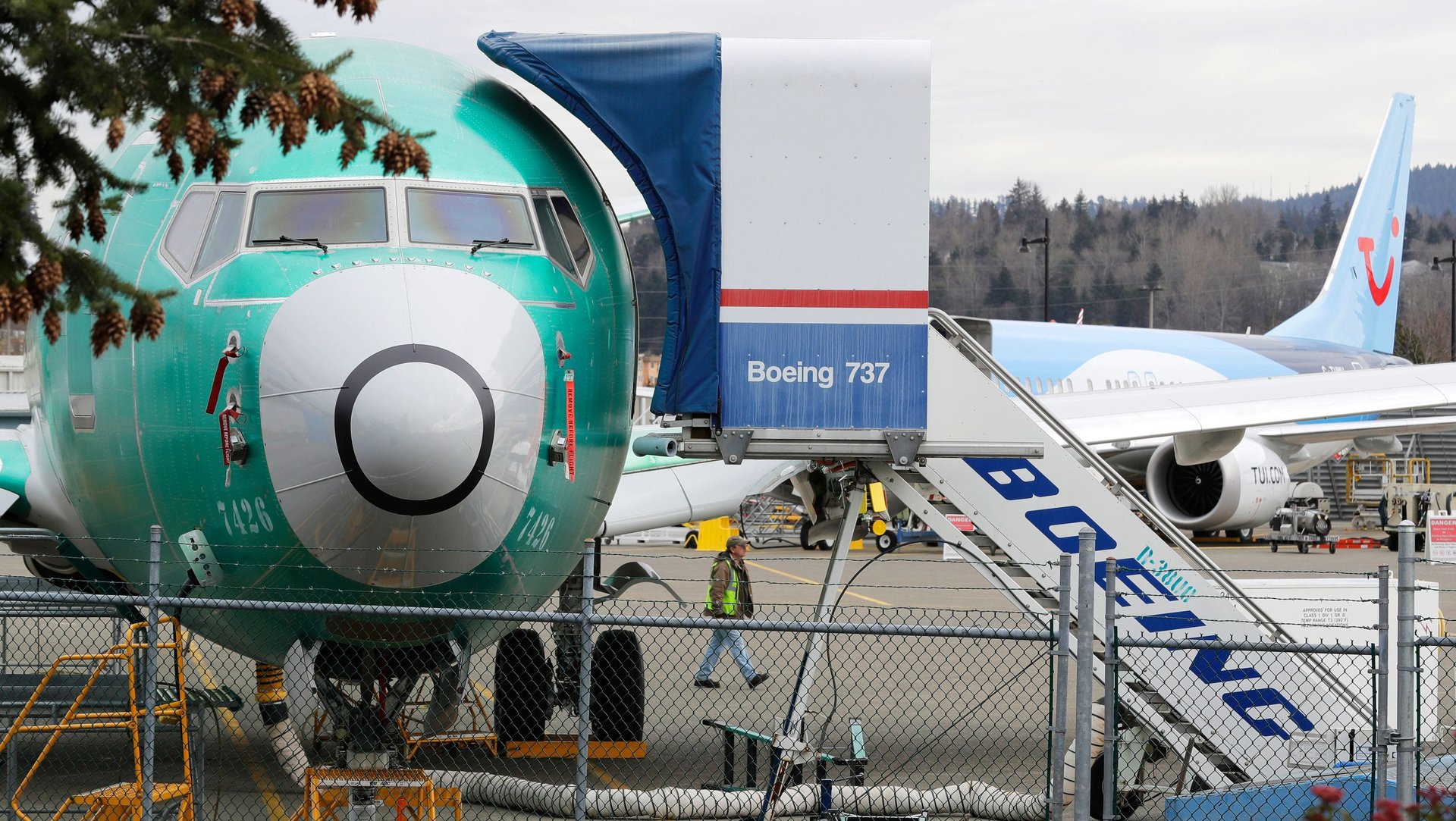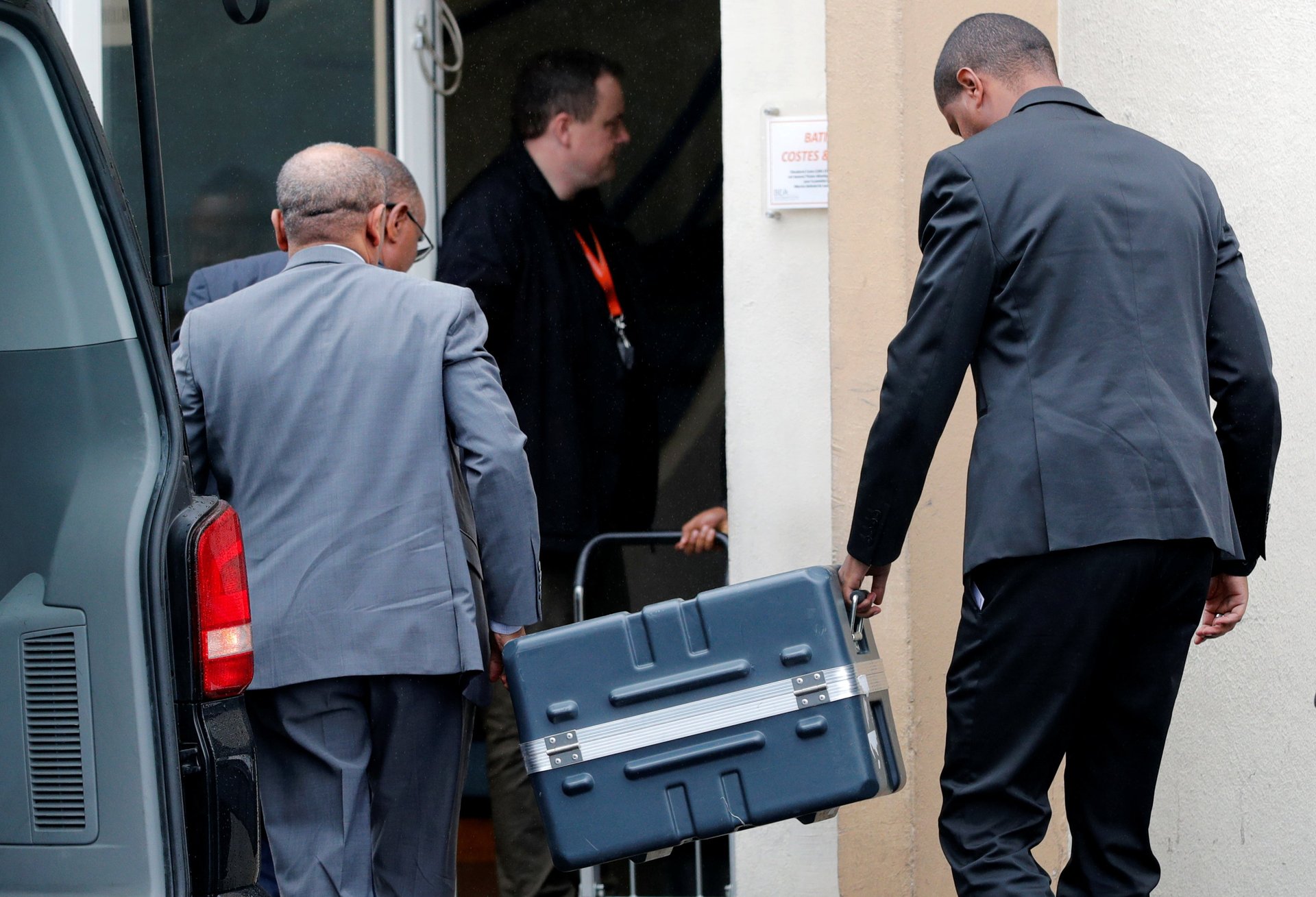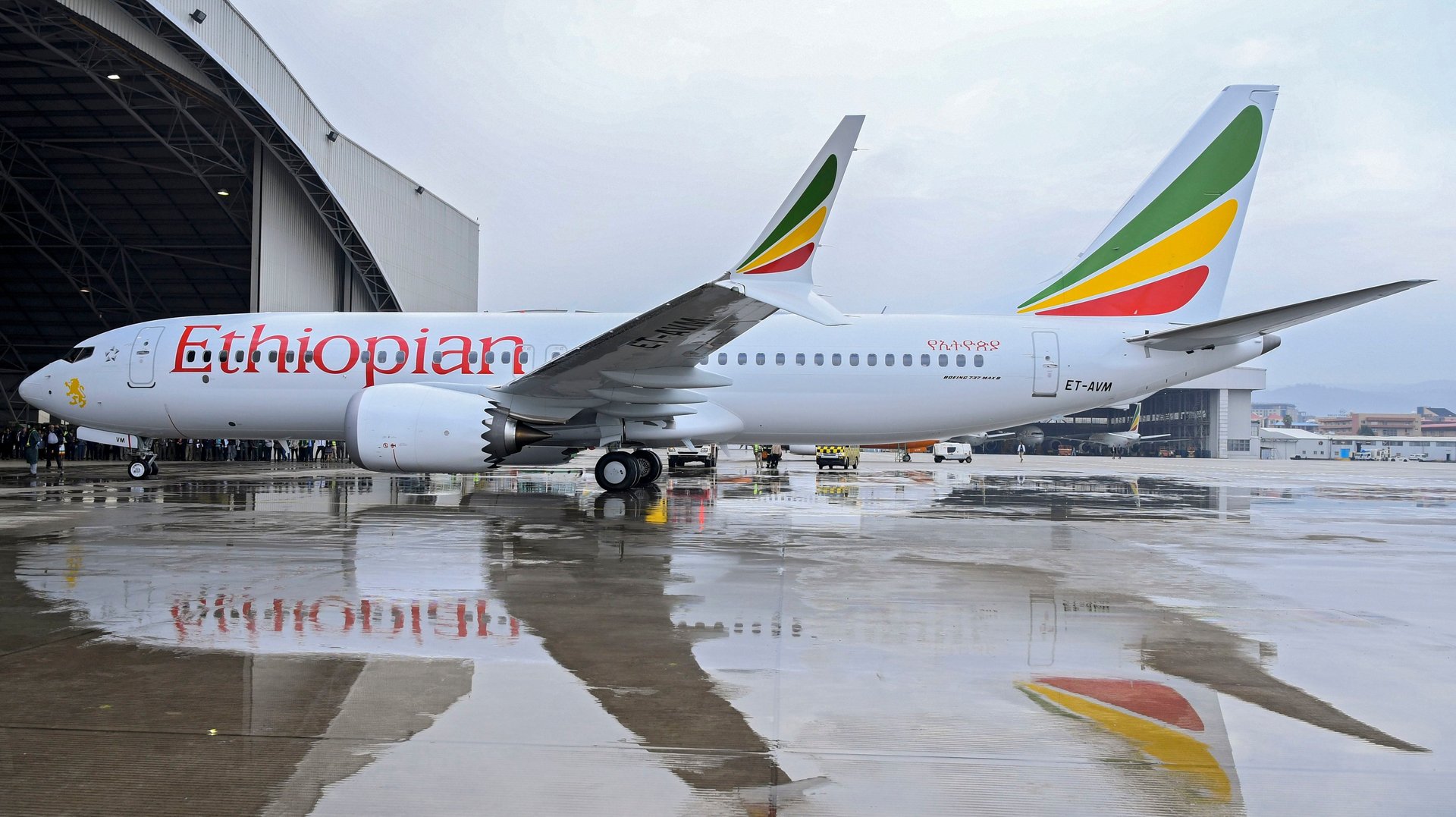The battle over the future of Boeing’s 737 Max is heading to US courts
As the world awaits the preliminary report into the crash of Ethiopian Airlines jet last month, lawyers across the world say they are firming up their cases against both the carrier and the aircraft manufacturer Boeing.


As the world awaits the preliminary report into the crash of Ethiopian Airlines jet last month, lawyers across the world say they are firming up their cases against both the carrier and the aircraft manufacturer Boeing.
The ET 302 flight crashed on Mar. 10 outside Addis Ababa, killing 157 people from over 30 nations just months after a similar aircraft model crashed off the coast of Indonesia, killing all 189 people on board. Since then, questions have swirled around the 737 Max 8’s automated anti-stall system, whether Boeing prioritized commercial deadlines over safety issues, and if the state airline trained and alerted its crew more explicitly to the possible risks of the 737 Max series.
The cases could present an obstacle for Ethiopian, a fast-growing airline that hauls almost 11 million passengers annually. But the lawsuits seem a bigger risk for Boeing, especially if investigations conclude defective technology or maintenance processes were in any way to blame for the crashes. Following the grounding of the 737 Max 8 globally, the US government is conducting a criminal investigation while the US department of transportation is probing the regulator Federal Aviation Administration with respect to the certification of the 737 Max.
A number of airlines globally like Indonesia’s flag-carrier Garuda have also canceled their orders, while Vietnam’s Bamboo Airways announced plans to purchase Airbus planes reversing an earlier decision to buy 100 737 Max aircraft. And as Boeing finalizes a software patch and new training module for the series, more families from the October Lion Air crash in Jakarta continue to file cases against it in the United States.
“This is clearly a Boeing safety issue and all the relevant information concerning that safety issue is in the US,” says Daniel Rose, a partner at Kreindler & Kreindler firm in New York who specializes in litigating airline crash cases.
Rose’s firm has so far been contacted by families of Ethiopian crash in Kenya, Ethiopia, Italy, Israel, and the United States. With two crashes involving new jets of the same models, Rose says “the intervening five months is the critical time period when safety decisions were made and that is what makes ET 302 a stronger claim, especially for non-US families.”

However, suing Boeing in the US might prove challenging given the trend in courts have favored the manufacturer in the past. To minimize eventual costs and reputational loss, the company previously used the doctrine of “inconvenient forum” to request US courts dismiss or send cases filed in US courts to countries which they argue are better connected to a particular air accident or those the accident affected, says Joseph Wheeler, the founder and legal practice director of the Brisbane firm International Aerospace Law & Policy Group (IALPG).
For instance, a US judge last year ruled that a case seeking compensation against Boeing and its insurer for the loss of the flight MH370 belonged in Malaysia and not in the United States.
Yet that could change this time around, Wheeler argues, given that the suit might focus “on a number of design elements where evidence about the safety or efficacy of those designs would solely be found in the US, including relevant witnesses.”
The US would also have a strong interest in resolving these safety issues, he stated, given that lawsuits could examine the interrelation between Boeing, the FAA, and other regulators. The case is also compounded by the fact that eight American nationals died on ET 302—even though US courts, Wheeler said, have dismissed cases where US citizens were involved in a crash outside US territory.
Suing Ethiopian Airlines
While most of the cases are piling against Boeing—including one from Rwanda—lawyers say they aren’t ruling out making claims against Ethiopian Airlines. Wheeler says they will do all that’s necessary “to extract the maximum lawful entitlements” including potentially liable entities like “product component manufacturers, training organizations, or regulatory bodies.”
IALPG was involved in resolving the cases for the families of 38 of the 55 passengers killed onboard Flydubai 981 that crashed in Russia in 2016.
Both Wheeler and Rose, however, admitted it would be hard to pursue a case against the FAA since they enjoy unique legal protections and defenses not to mention the complex legal obstacles to suing a government agency.
Lawyers say under the Montreal Convention for victim compensation, Ethiopian could be liable to pay the deceased’s family up to $157,000 without any proof of fault on its part. But for any higher amounts claimed, Wheeler said carriers usually defend themselves through litigation or negotiation especially if they can prove the damage was not due to their own negligence.
In the case of the Ethiopian crash, Rose says that families might not sue the airline, especially outside the US, given the risk that could pose to the much more significant compensation of a successful US claim against Boeing. Besides, since “there will almost certainly be an agreement between the insurers for Boeing and Ethiopian Airlines,” that “means that a resolution of claims against Boeing will also resolve claims against Ethiopian Airlines.”

And while compensation will depend on individual circumstances, Rose says rewards in the lower end in this scenario could be between $1 million to $3 million and could go as high as $5 million to $10 million if the deceased was a significant earner and supporting a family. At least 19 United Nations staff, as well as academics and business executives, were killed on the Ethiopian crash.
Recovering costs
In the case that Ethiopian pays up, legal experts say the airline will seek to recoup those losses from Boeing. Rose says this is why families shouldn’t start legal proceedings against Ethiopian abroad since Boeing might ask the court to send the litigation overseas and even “accept fault if the case is transferred to a foreign country. This could significantly reduce the value of the families’ claims against Boeing.”
Asked if they might sue Boeing, Ethiopian chief executive Tewolde GebreMariam told Quartz Africa in Kigali, Rwanda last week that, “All these things are at a very early stage. And we are long-time partners with Boeing so we will discuss on a lot of issues.”

As the probe over the Ethiopian crash concludes, the families of the crash victims are asking governments and lawyers for assistance. Don Worley, of the McDonald Worley firm in Texas, says several people have reached out to him with regards to assessing individual cases. Wheeler also said he’s due to visit Kenya soon to reach out to families. The cases are drawing global attention as liability claims related to the crash in addition to the grounding of the 737 Max are expected to be the largest non-war aviation reinsurance claim on record, according to insurance firm Willis Re.
“Yes, there will probably be claims against Boeing’s insurers for the loss of the plane,” Rose noted, “but there will also likely be claims by all the airlines who were grounded against Boeing for lost revenue.”
Sign up to the Quartz Africa Weekly Brief here for news and analysis on African business, tech and innovation in your inbox